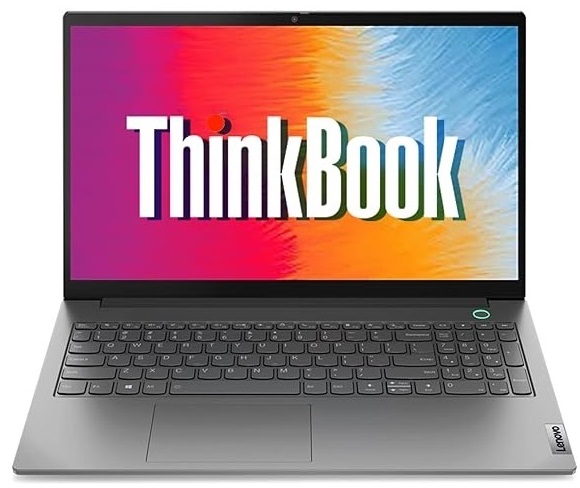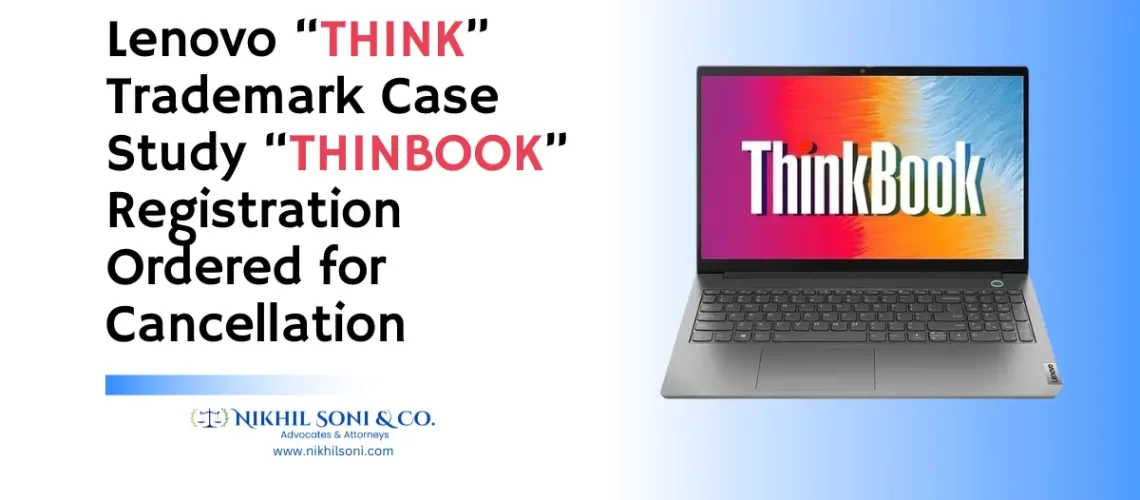Table of Contents
ToggleLenovo THINK Trademark Case Study
In a significant ruling, the Madras High Court upheld Lenovo’s exclusive rights over the “THINK” family of trademarks, ordering the cancellation of the respondent company’s “THINBOOK” trademark registration. Justice Abdul Quddhose emphasized that Lenovo’s long-standing usage and widespread recognition of the “THINK” branding have established its distinctiveness, making it a well-known mark in the industry. The court concluded that the respondent company’s use of a deceptively similar mark could lead to public confusion and harm Lenovo’s brand reputation.

Lenovo’s Petition to Protect Its “THINK” Trademark
Lenovo initiated legal proceedings to seek the removal of the “THINBOOK” trademark, arguing that its usage was infringing upon Lenovo’s rights. The tech giant highlighted that it has been using the “THINK” family of marks since 1992 for various products, including laptops, notebooks, and tablets. Over the decades, the “THINK” branding has become synonymous with Lenovo, securing widespread recognition and goodwill in the global market.
The company contended that its trademarks are protected under Section 2(1)(zg) of the Indian Trademarks Act, which recognizes well-known marks. Lenovo further asserted that it held prior rights over the trademark, which the respondent’s “THINBOOK” branding was deceptively similar to, creating a risk of confusion among consumers.
Allegations of Registry Oversight
Lenovo criticized the Trademark Registry for granting the “THINBOOK” registration to the respondent company without due diligence. According to Lenovo, the Registry failed to account for Lenovo’s prior usage and reputation of the “THINK” family of marks, thus violating the provisions of Section 11(1) of the Trademarks Act. This section prohibits the registration of trademarks that are identical or similar to well-known marks if such use is likely to cause confusion.
Lenovo argued that the approval of the “THINBOOK” trademark was a result of non-application of mind by the Registry. The company claimed that this oversight directly infringed upon Lenovo’s rights and undermined the protections granted to well-known trademarks.
Respondent’s Defense
The Trademark Registry defended its decision, asserting that the “THINBOOK” registration had been granted after following all the necessary procedures outlined in the Trademarks Act. The respondent company also claimed that there was no deliberate attempt to misrepresent or deceive the public with its branding.
However, the court found Lenovo’s arguments to be more compelling, citing the company’s established reputation and the potential for consumer confusion due to the similarity of the marks.
Court’s Observations and Verdict
After examining the evidence, the court concluded that Lenovo’s “THINK” branding had gained significant recognition and goodwill, both in India and internationally. Justice Abdul Quddhose noted that the respondent company’s “THINBOOK” mark was deceptively similar and that its registration violated the provisions of the Trademarks Act.
The court also observed that the Registry had erred in granting the trademark to the respondent company, as it failed to adequately consider Lenovo’s prior usage and the potential for public confusion.
Based on these findings, the court directed the second respondent—the Trademark Registry—to cancel the registration of the “THINBOOK” trademark (bearing No. 3558396 under Class 9). The court ordered the removal of the mark from the Register of Trademarks within four weeks of receiving the court’s order.
Read Meanwhile: Frequently Asked Questions About Trademark Registration
Key Takeaways
This judgment underscores the importance of protecting well-known trademarks and the responsibilities of the Trademark Registry to ensure that registrations are granted in compliance with the law. It also highlights how businesses with established trademarks can seek legal remedies to safeguard their brand identity against infringing or deceptively similar marks.
Lenovo’s victory in this case not only reinforces its rights over the “THINK” family of marks but also sets a precedent for the protection of intellectual property in India’s competitive market. The ruling sends a clear message to companies attempting to adopt similar trademarks that infringe upon established brands, emphasizing the need for originality and compliance with trademark laws.
By successfully defending its trademark rights, Lenovo has reaffirmed its position as a global leader in the tech industry, ensuring that its “THINK” branding remains distinctive and free from unauthorized use. The case also serves as a cautionary tale for businesses and emphasizes the critical role of due diligence in trademark registration and brand protection strategies.
This landmark decision by the Madras High Court not only vindicates Lenovo’s stance but also reinforces the legal framework protecting intellectual property rights in India.
Check your trademark on the Register.
Lenovo THINK Trademark Case Study, Lenovo THINK Trademark Case Study, Lenovo THINK Trademark Case Study, Lenovo THINK Trademark Case Study, Lenovo THINK Trademark Case Study, Lenovo THINK Trademark Case Study




